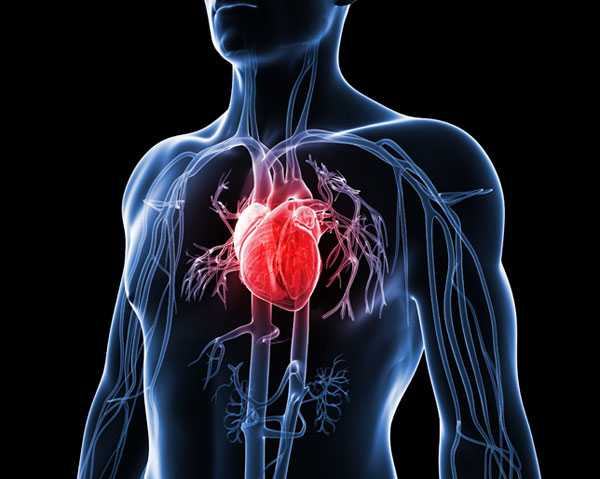
Minimally Invasive Heart Surgery: Recovery And Lifestyle Adjustments

Minimally invasive heart surgery (MIHS) has revolutionized the way we approach cardiac care. Unlike traditional open-heart surgery, MIHS uses small incisions, specialized instruments, and advanced imaging techniques to treat heart conditions with reduced trauma. This approach results in faster recovery times, less pain, and fewer complications. However, the recovery process and lifestyle adjustments post-surgery are critical for long-term success. Let’s explore what to expect after minimally invasive heart surgery and how to make the necessary changes to maintain heart health.
What to Expect During Recovery
1. Shorter Hospital Stay
Patients undergoing MIHS typically stay in the hospital for 3–5 days, compared to 7–10 days for traditional surgery. During this time, your medical team will monitor vital signs, manage pain, and ensure your heart is functioning well.
2. Faster Healing
The smaller incisions used in MIHS mean less tissue damage, resulting in quicker healing. You may experience minor discomfort, which can be managed with prescribed pain relievers. Most patients return to normal activities within 4–6 weeks, compared to 6–12 weeks for open-heart surgery.
3. Monitoring for Complications
Although rare, complications such as infections, bleeding, or irregular heart rhythms can occur. Follow your doctor’s instructions and report any unusual symptoms, such as fever, swelling, or shortness of breath, immediately.
4. Physical Therapy
Rehabilitation often includes light physical therapy to restore strength and mobility. Cardiac rehabilitation programs guide you through safe exercises tailored to your condition.
Lifestyle Adjustments Post-Surgery
Recovering from minimally invasive heart surgery doesn’t end with physical healing. Lifestyle changes are essential to prevent further cardiac issues and optimize your heart health.
1. Heart-Healthy Diet
Adopt a diet rich in:
- Fruits and Vegetables: Packed with vitamins, minerals, and antioxidants.
- Whole Grains: Excellent sources of fiber to lower cholesterol.
- Lean Proteins: Include fish, poultry, and plant-based proteins.
- Healthy Fats: Focus on nuts, seeds, and omega-3 fatty acids from fish.
Limit salt, sugar, and unhealthy fats (trans and saturated fats) to manage blood pressure and cholesterol levels.
2. Regular Exercise
Physical activity strengthens your heart and improves circulation. After consulting your doctor, start with light activities like walking or yoga. Gradually incorporate moderate-intensity exercises, such as:
- Brisk walking
- Cycling
- Swimming
Aim for at least 150 minutes of moderate aerobic exercise per week.
3. Stress Management
Chronic stress can strain your heart. Practice relaxation techniques like:
- Meditation: Calms the mind and lowers blood pressure.
- Deep Breathing: Reduces anxiety and promotes relaxation.
- Hobbies: Engaging in enjoyable activities can relieve stress.
Consider professional counseling if stress becomes overwhelming.
4. Smoking Cessation
Smoking damages blood vessels and increases the risk of heart disease. If you’re a smoker, quitting is one of the most important steps you can take. Seek support through cessation programs, nicotine replacement therapy, or counseling.
5. Alcohol in Moderation
Excessive alcohol consumption can lead to high blood pressure and other heart issues. Stick to recommended limits:
- Men: Up to two drinks per day
- Women: Up to one drink per day
6. Medication Adherence
Your doctor may prescribe medications to:
- Control blood pressure
- Reduce cholesterol
- Prevent blood clots
Take medications as directed and discuss any side effects or concerns with your doctor.
7. Regular Check-Ups
Frequent follow-ups with your cardiologist are essential. These visits ensure your heart is recovering well and monitor for potential complications. Tests like echocardiograms or stress tests may be performed to assess your progress. Concerned about your heart health in Seawoods? If you need expert care, Cura Clinic has a specialist cardiologist in Seawoods to help you. Don’t hesitate to seek the right treatment.
Tips for a Smooth Recovery
- Get Adequate Rest: Sleep is crucial for healing. Create a comfortable sleep environment and follow a consistent sleep schedule.
- Stay Hydrated: Drink plenty of water to aid in recovery and maintain overall health.
- Avoid Heavy Lifting: Refrain from lifting heavy objects during the initial weeks to prevent strain on your chest.
- Follow Wound Care Instructions: Keep the surgical area clean and dry to reduce infection risk.
When to Seek Medical Attention
While complications are rare, contact your doctor immediately if you experience:
- Severe chest pain
- Difficulty breathing
- Signs of infection (redness, swelling, or discharge)
- Persistent fatigue or dizziness
- Irregular heartbeat
Conclusion
Minimally invasive heart surgery offers a safer, faster, and more efficient approach to treating heart conditions. However, your recovery and long-term success depend on your commitment to a healthy lifestyle. By making heart-friendly changes in your diet, exercise routine, and stress management techniques, you can ensure your heart stays strong and healthy for years to come. Always consult your medical team for personalized advice and support throughout your journey to recovery.
Author Bio
Article Comments
No Comments!
At present there are zero comments on this article.
Why not be the first to make a comment?
Similar Articles
Search Pages
User Upgrade
account to full use of editor,
Including hyperlinks
Article Categories
There are zero sub-categories in this parent category.
There are zero sub-categories in this parent category.

















